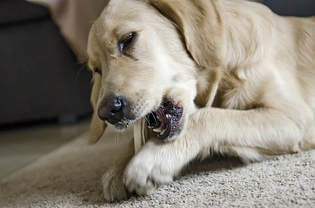
Dental Cleaning
Dental disease can cause bad breath, painful chewing, and tooth loss. In addition, bacteria under the gum line can travel in the bloodstream to infect the heart, liver, and kidneys, causing damage to these organs. During a dental, we fully anesthetize your pet and do thorough scaling (to remove tartar and plaque), polishing, an in-depth exam of the mouth, and extract any teeth if needed. To ensure the safety of your pet, we recommend pre-surgical blood testing whenever an animal is placed under anesthesia. During anesthesia, your pet is connected to an electronic surgical monitor which monitors EKG, oxygen saturation, pulse, and respiration. They are also placed on a heated pad and continuously monitored by a licensed veterinary technician. Animals will also have an intravenous catheter placed and receive fluids for most procedures. Talk to our staff or your veterinarian for more information. Prevention & Maintenance What can you do to help prevent tartar build up from a young age or after a dental cleaning has been done? There are various options including, but not limited to; teeth brushing, chew toys, treats, and prescription diets. Here at St. Johns Animal Clinic, our staff recommend and have had great success using OraVet Dental Chews* to freshen your dog's breath and even help break down plaque. Check out their website for additional information, including a video on the science of how these chews work. Additionally, the American Veterinary Dental college has some helpful recommendations for dental home care for both dogs* and cats*. *All underlined text are links to more information, so click and check them out! |